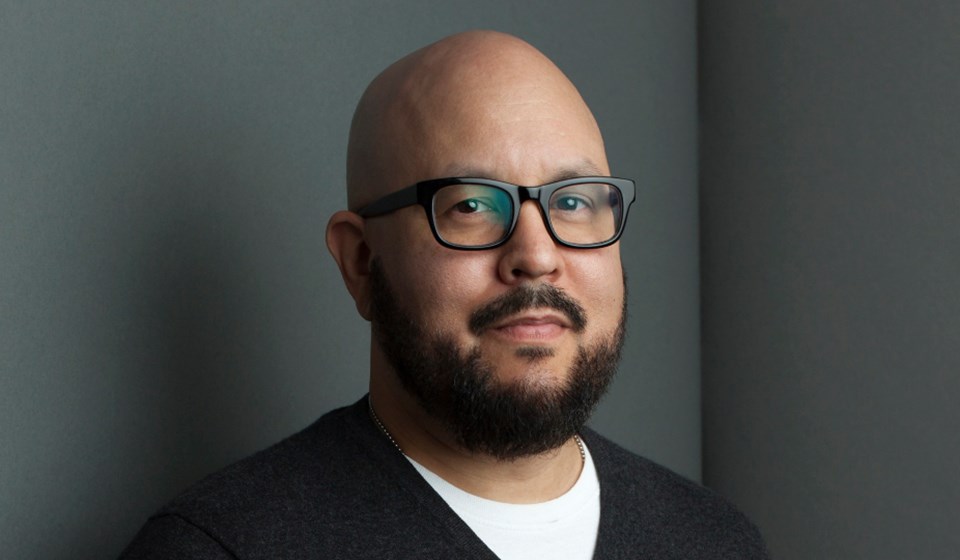
A People’s History of the Vampire Uprising isn’t your everyday horror novel. Presented as an oral history, it’s a chilling mix of witness statements, legal documents, and interviews, and it should come as no surprise that the film rights have already been snapped up by Fox and 21 Laps, the team behind Stranger Things.
AU Reviewer Jodie B. Sloan had the chance to chat to author Raymond A. Villareal about his unique take on the genre, the vampire classics that inspired him, and the unnerving, real-life questions at the heart of the novel.
For starters, could you tell us a little about the book? (No spoilers, please!)
My book is called A People’s History of the Vampire Uprising—it’s fiction. It is an oral history about the origin of a virus that turns humans into vampires. It starts with the mystery of a dead body that somehow left the morgue and the investigators who track the disease, how governments around the world come to terms with this new species of human it creates, and the competing interests involved among those who want to destroy them and those who want to help them.
And what do the vampires want? Well that remains to be seen…
A People’s History is a really quite unique work. Where did the idea for it come from?
I approached this novel from a love of vampire books! From Bram Stoker’s Dracula to Anne Rice’s Interview with the Vampire to Stephen King’s Salem’s Lot, I always wanted to approach that genre with something different. I can’t compare mine to those extraordinary books but I wanted to do something meaningful like those novels within the context of how we view people different from us.
The research aspect also appeals to me. I love diving into different topics that I had no previous knowledge of in the past. And I also love making up backstories for characters, joining the mundane and extraordinary aspects of these character’s lives. It also helped me consider how different segments of your population are treated by others.
How do different countries approach those people who are different? Do we give in to hysteria or do we keep an open mind? And I also wanted to scare people. Do you support vampires or humans?
What made you decide to write it in the way you did?
I wanted there to be viewpoints from the perspective of different people and their reactions to this new virus and I thought different first-person narratives would be a great way. I also thought adding newspaper articles and magazine articles would also be a cool way to create this environment.
There’s a wonderful parallel between the inventive style of your book and the way Bram Stoker’s Dracula was written back in the 1890s – both are a real mix of different writing formats and narrative voices. Was that an intentional nod or just a happy accident?
It was definitely intentional! I am a huge fan of Bram Stoker’s Dracula. His format makes the story seem so much more real and scary.
There’s a really varied mix of characters in the book. Do you have any particular favourite voices from the novel? Any characters you really loved getting in the heads of?
I would say that my favorite character is Sara Mesley. She was the most fun I had writing. Her story was originally longer but we had to edit a lot of it out. I think she is a bad-ass using her mind and fighting skills to accomplish her duties. A martial arts master, she’s also unsure of her place in all the hysteria involved with the vampires. I like how she puts everyone on edge even her allies. I also enjoyed writing the Joseph Barrera character because he can be kind of a jerk and sometimes those are the most fun.
There’s some really interesting questions raised in the book. Civil rights, research ethics, fear as a form of power, the privilege of choice – A People’s History really gets the brain going! Would you say any of the issues raised in the book have parallels in the real world?
I really think so. One of the issues confronted in the book is Class/Prejudice. It is a concept that I wanted to explore and that lent itself to this type of novel. I think we are all aware of prejudice and how some people are treated differently from others. I’m not singling out one country—this is all countries.
I always find ethical questions involving research and medicine to be fascinating. We are confronted by these issues as people constantly. And in this book, people are confronted by a new species that appears to them to be threatening. Are they to be accommodated or destroyed?
The film rights for A People’s History were snapped up before the book was even on shelves. What was it like putting a novel out there that had already created such a huge buzz?
It has been a totally amazing experience! I think all writers hope that their work will be made into a movie or television series and I was no exception. But when it actually happened I couldn’t believe it. This whole experience has proceeded even better than I could have imagined.
And, finally, what’s next for you? Any more writing in the works?
I’m already deep into writing my next novel. Hopefully everyone loves it!
Published by Hachette Australia, A People’s History of the Vampire Uprising is out now! Read our review of it here!
Thanks to Raymond and the Hachette publicity team for setting up and taking the time to do this interview!
———-
